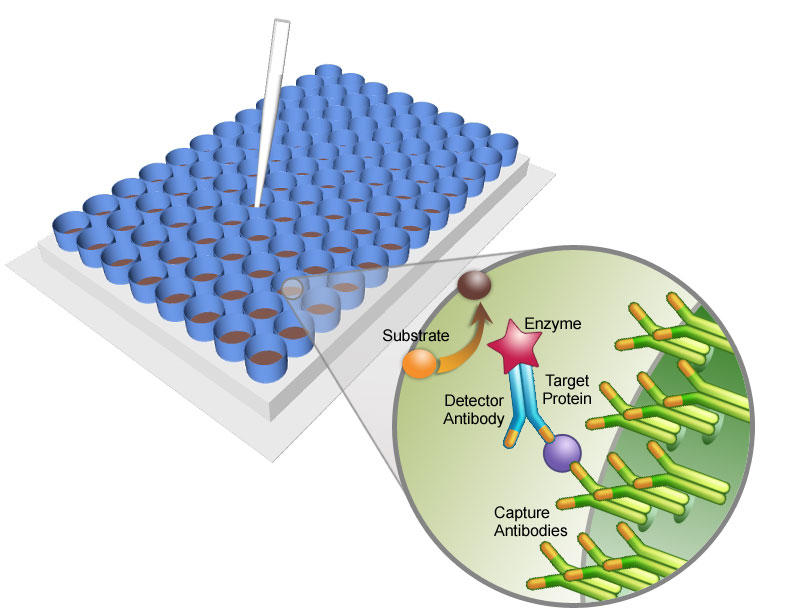A more sensitive antibody-based GMO detection method is the ELISA (Enzyme-linked immunosorbent assay). In this assay, a sample solution predicted to contain a particular GMO protein is added to a multi-well solid plate on which GMO protein specific antibody has been immobilized. If the GMO protein is present in the sample it will bind to the immobilized capture antibody. After washing, a different antibody, also specific for the protein of interest and tagged with an enzyme, is added to the well. The enzyme linked detection antibody will bind any GMO protein already immobilized to the well by the capture antibody. After another round of washing to remove any unbound antibody, the substrate for the enzyme is added which induces a color change in the solution. The degree of color change is directly proportional to the amount of GMO protein present in the well.

The ELISA procedure is longer than that of a strip test (hours vs. minutes) and is often more sensitive, with a limit of detection in the 0.01 – 1 % range. However, the ELISA methodology has the same requirement for intact protein as the strip test. It is not a suitable GMO detection method if the inserted transgene does not code for protein, or if proteins in the sample have been degraded with heat or chemical processing. ELISA tests are therefore not commonly used for GMO detection due to the need for intact protein, a laboratory setting, and the fact that genetic analysis provides equivalent or greater sensitivity.
